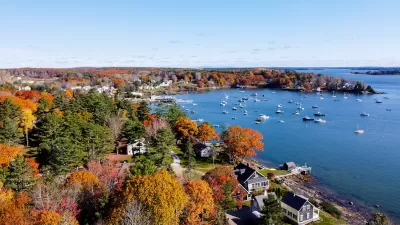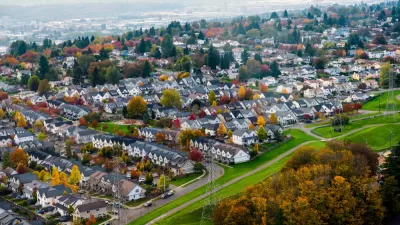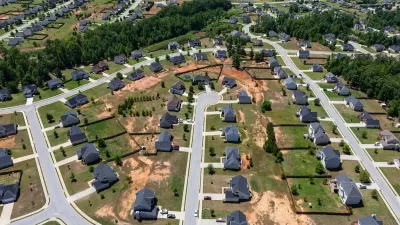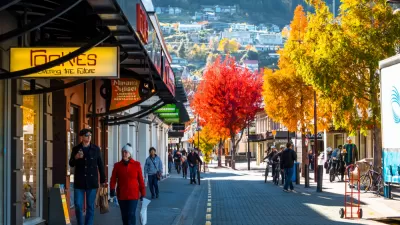New state legislation encourages cities to plan around ‘smart growth’ principles to preserve farmland and open space, and use infill development to build more housing.

Writing in Maine Public, Zara Norman describes how Maine towns are shifting to ‘smart growth’ principles to preserve open space and build livable, affordable cities.
By 2040, more than 50,000 acres of Maine farmland may be lost to urban and low-density conversion, according to the American Farmland Trust. That will put pressure on regional food systems, hurt farmers and worsen the effects of climate change, Julia Freedgood, a senior fellow with the farmland trust, said.
Norman explains that ‘smart growth’ seeks to balance protecting agricultural and open land with meeting the need for affordable housing, even in rural communities that are seeing rapidly rising housing costs around the country.
A new state law will guide development along these principles. “The bill, backed by GrowSmart Maine, defines more clearly what a ‘rural’ or ‘downtown’ area is, makes data collection easier for towns and stresses the importance of community engagement in creating comprehensive plans.”
FULL STORY: Maine towns are trying to undo planning decisions of the past

Planetizen Federal Action Tracker
A weekly monitor of how Trump’s orders and actions are impacting planners and planning in America.

Map: Where Senate Republicans Want to Sell Your Public Lands
For public land advocates, the Senate Republicans’ proposal to sell millions of acres of public land in the West is “the biggest fight of their careers.”

Restaurant Patios Were a Pandemic Win — Why Were They so Hard to Keep?
Social distancing requirements and changes in travel patterns prompted cities to pilot new uses for street and sidewalk space. Then it got complicated.

Platform Pilsner: Vancouver Transit Agency Releases... a Beer?
TransLink will receive a portion of every sale of the four-pack.

Toronto Weighs Cheaper Transit, Parking Hikes for Major Events
Special event rates would take effect during large festivals, sports games and concerts to ‘discourage driving, manage congestion and free up space for transit.”

Berlin to Consider Car-Free Zone Larger Than Manhattan
The area bound by the 22-mile Ringbahn would still allow 12 uses of a private automobile per year per person, and several other exemptions.
Urban Design for Planners 1: Software Tools
This six-course series explores essential urban design concepts using open source software and equips planners with the tools they need to participate fully in the urban design process.
Planning for Universal Design
Learn the tools for implementing Universal Design in planning regulations.
Heyer Gruel & Associates PA
JM Goldson LLC
Custer County Colorado
City of Camden Redevelopment Agency
City of Astoria
Transportation Research & Education Center (TREC) at Portland State University
Camden Redevelopment Agency
City of Claremont
Municipality of Princeton (NJ)





























